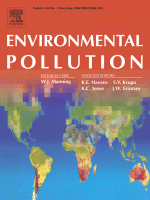Integrated farming system producing zero emissions and sustainable livelihood for small-scale cattle farms: Case study in the Mekong Delta, Viet Nam

Journal: Environmental Pollution
Authors: Thanh Hai Le, Quoc Ba Tran, Van Tung Tra, Thi Phuong Thao Nguyen, Trong Nhan Le, Hans Schnitzer, Gerhart Braunegg, Son Le, Cong Tin Hoang, Xuan Cuong Nguyen, Van-Huy Nguyen, Wanxi Peng, Soo Young Kim, Su Shiung Lam, Quyết Văn Le
IF: 6.152
Abstract: This study proposes an integrated cattle breeding and cultivation system that provides zero emission and sustainable livelihood for the community in rural areas. The proposed integrated farming system improves agricultural productivity and environmental and sanitation conditions, minimizes the amount of waste, and increases the family income up to 41.55%. Several waste types can be recycled and transformed into valuable products, such as energy for cooking, organic fertilizer for crops, and cattle feed for breeding. Wastewater effluent from the biogas tank can be treated by biochar and results show that it then meets the standards for irrigation purposes. Also, the waste flow from cattle breeding supplies enough nutrients to cultivate plants, and the plants grown supply are adequate food for the 30 cows living on the farm. This research shows that the use of an integrated farming system could achieve zero-emission goal. Thereby, it provides a sustainable livelihood for cattle breeding family farms. The proposed integrated cattle breeding and cultivation system improves agricultural productivity, environmental and increases the farmer income up to 41.55%
